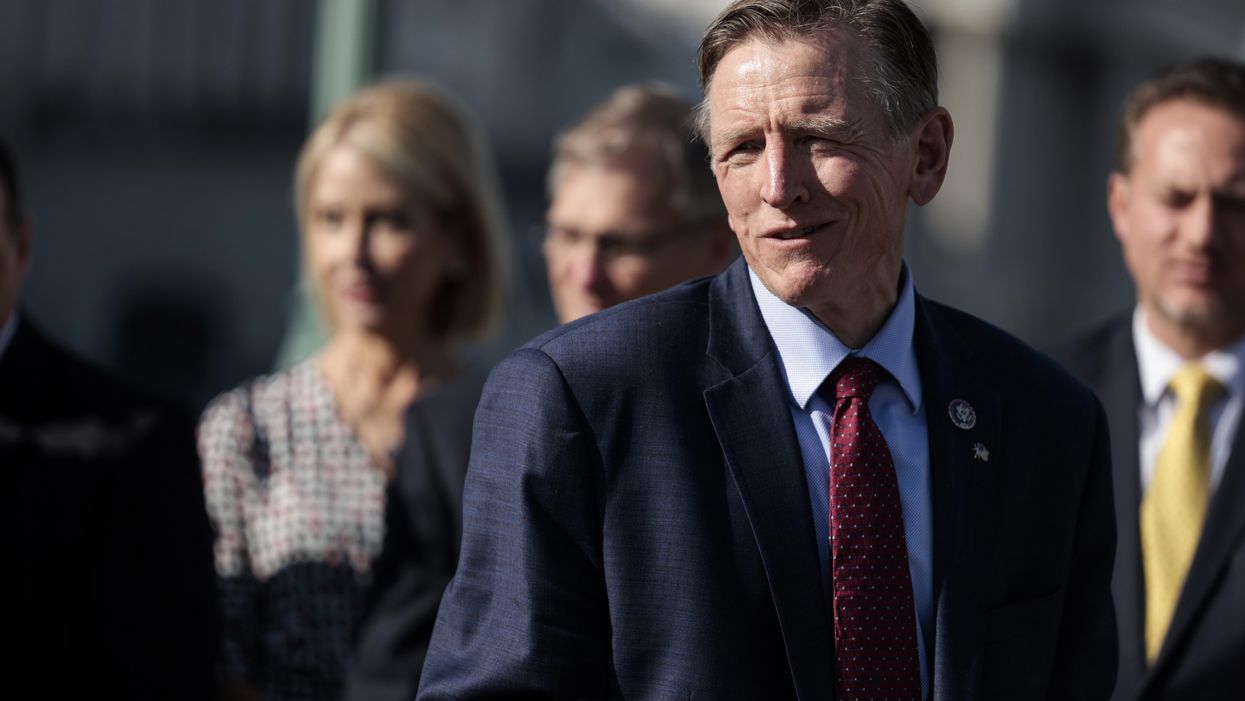Carlos De Castro Pretelt is a retired Army officer and supporter of Veterans for Political Innovation.
"Their beliefs are an existential threat to America!"
In the festering, Lord of the Flies spring of gushing anxiety we refer to as “politics,” that offensive, trash-ass sentence has become the de facto approach to the disagreements of our era. As a very recently retired member of the military, with 22 years of undiluted indoctrination under my belt, I take these types of sentences, and the emotions they are meant to elicit, seriously.
During the travails of military service, I’ve been trained and qualified in the dispassionate application of violence. Who would like for you to believe there is any respite or righteousness in its application is not intimately familiar with the long-term effects of it. Much like in war, there are seldom any clear winners and losers. Everyone loses something. Thus, when I see or hear politicians make statements that inherently endorse or suggest hurting other Americans, it gives me great cause for concern.
This propensity to advocate for violence in politics is something that has been growing over the last few years. As the rate of polarization continues to increase – that is, the rate at which you believe your neighbor’s beliefs are an actual threat to your existence – the more likely you are to see others as less than human. Add to this the caustic and incendiary verbiage utilized by media outlets to keep your eyes and ears rapt in a near-constant state of flight or fight and you end up with an open Lemarchand’s Box, popularized by the Hellraiser movies. Basically, it invites a version of reality that nobody but the most gluttonous masochists enjoy. Which is sorta where we find ourselves. Sigh.
This is how we end up with representatives habitually making statements about how plainly stupid other members of Congress are and how they will make them pay, on your behalf, by inflicting violence upon them. Which is how you end up with a dentist who runs for political office and then makes a video of himself decapitating other members of Congress. Granted, in anime style. But also, what?
There are two things driving this madness. The first part is that this is all operatic. These individuals know violence will not help them achieve their goal, but they just want you to please look at them. Like a really, really old child vying for attention, it’s as if they never understood positive vs negative attention. The second part is about making a statement. Due to polarization, politicians must fend off challengers within their own party who are eager to paint them as soft on existential threats!
The good news is that we are not lost and we didn’t get to this wacky hellscape by mistake. We got here by design. You see, current politics are structured in a way that forces you to choose a side and swear loyalty to it, repeatedly. Like a really intense, super needy acquaintance. For example, name any contentious issue right now and you will see that the two parties have drawn imaginary lines and crafted talking points with specific words that you can use to proclaim your brand alignment to the world. This isolates you from competing views, which may provide a different approach to the issue, and it relegates your persona to future party edicts. The more brand allegiance the party has, the less uncertainty they can expect from you in the future. (Uncertainty referring to your ability to analyze extraneous ideas and decide if another party better represents your values.)
We do not have to continue playing this tired, silly game. We can break up the two-party duopoly by supercharging our voting processes. As a team, this is absolutely achievable. There are a number of ballot initiatives in Missouri, Wisconsin and Nevada that are meant to introduce open primaries and ranked-choice voting in our elections. This change would have a significant, if not historical, impact in the political environment, best explained by the following video, which uses cute cartoons and animals.
How Industry Competition Theory Can Help Fix U.S. Politicswww.youtube.com
As you find yourself crawling around the internet, numbing your awareness with torrents of information, keep in mind that none of these politicians would actually do the things they irresponsibly advocate for. It is just an easy, lazy way to get your attention. To get you riled up so you keep clicking on their videos. The parties want you to refresh your brand loyalty and get you angry at other Americans by feeding you talking points and making very complex problems seem misleadingly easy. Because, if these problems are easy to fix, then that means they are letting this happen. Their beliefs are an existential threat to America! Patriots must take action!



















Trump & Hegseth gave Mark Kelly a huge 2028 gift